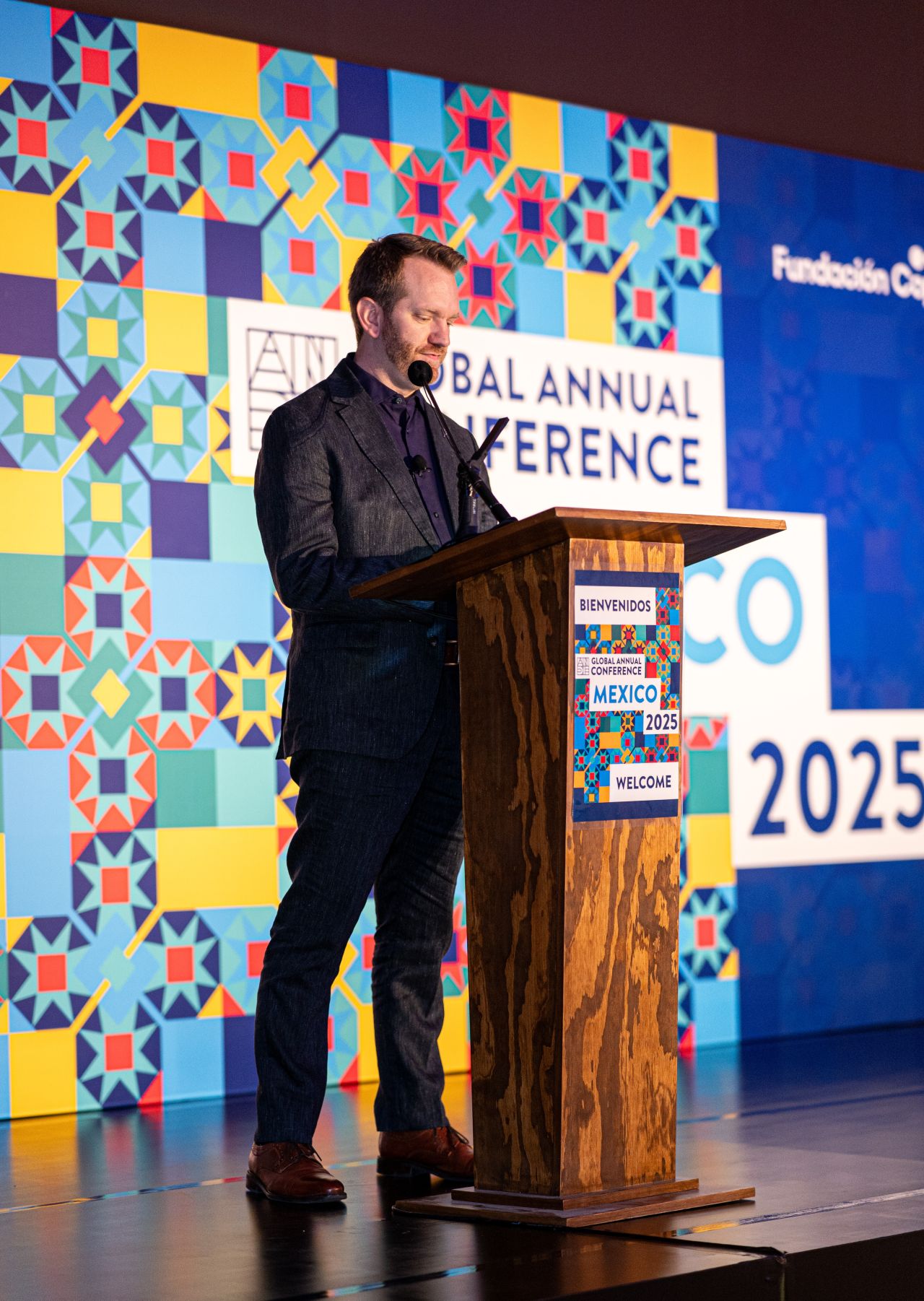Global leaders unite in Mexico to rethink entrepreneurial ecosystems—shifting from exclusionary design toward inclusive, co-created systems that empower communities worldwide.
Watch this video message from Charleen Duncan, Head of Programmes at Allan Gray Orbis Foundation:

This Tuesday, September 30, marks the opening of the ANDE Global Annual Conference 2025. Members and partners from across the world have gathered to explore how we can connect, innovate, and transform the entrepreneurial ecosystems of tomorrow. Devin Chesney, executive director of the Aspen Network of Development Entrepreneurs, invited us to recognize ourselves as a collective force capable of transforming entrepreneurship into an engine of economic and social development.
For more than a decade, ANDE’s Global Annual Conference has been the space where small and growing business (SGB) leaders, investors, and ecosystem builders come together to exchange knowledge, forge collaborations, and push the boundaries of inclusive entrepreneurship. This year in Cancún, we continue that tradition with a renewed sense of urgency: ecosystems as they exist today are not neutral—they are built on intentional design choices.
We asked Charleen Duncan, Head of Programmes at member organization Allan Gray Orbis Foundation, to reflect on our mission in a video message to the Conference’s attendees. Charleen challenges the widespread notion that entrepreneurial ecosystems are broken. Instead, she argues they were built to be exclusive, designed to favor a select few and systematically exclude others. Drawing on South African realities, she points to an investment landscape dominated by white, male, and elite actors—where pathways to funding and opportunity remain gated due to historic inequities. This is not a failure of function, she reminds us, but “a success of design.”
The implications are global. From refugee-led ventures in Europe, to rural entrepreneurs in India, to underserved communities in the United States, the barriers that entrepreneurs face often reflect similar “design flaws.” These systems, Duncan notes, teach few young Black women—or other marginalized groups—how to navigate opaque investor expectations or build networks they were not born into.
Diversity matters, but Charleen emphasizes that connection is the real goal. She asks: Can we co-design global thinking that leads to local healing? The challenge is not to import solutions but to exchange wisdom, combine the nuances of our diverse contexts, and create systems that truly work for all.
Her call is clear: ecosystems mirror our beliefs about people, value, and power. If we want transformation, we must dismantle and rebuild their architecture. The question must shift from “Who do we let in?” to “Who do we let build?”
As ANDE members gather in Cancún this week, Charleen’s message sets the tone: the ecosystem isn’t broken—it was built that way. And therefore, it can be rebuilt.
Let’s build it together.
If you haven’t registered yet, now is the time to secure your spot. We’re excited to welcome you to Haven Riviera Cancún from September 30 to October 2 for three days of meaningful connection, open dialogue, and genuine collaboration. Please note that ANDE has arranged with the hotel to offer a free night to members who register and book by July 25.
Learn more about the draft agenda on the event’s page
Let’s build the ecosystems of the future—together.
Interested in ecosystem transformation and not an ANDE member? Learn more about the benefits of membership. Subscribe to ANDE’s newsletter for updates on the agenda, speakers, and registration for the Global Annual Conference 2025.
